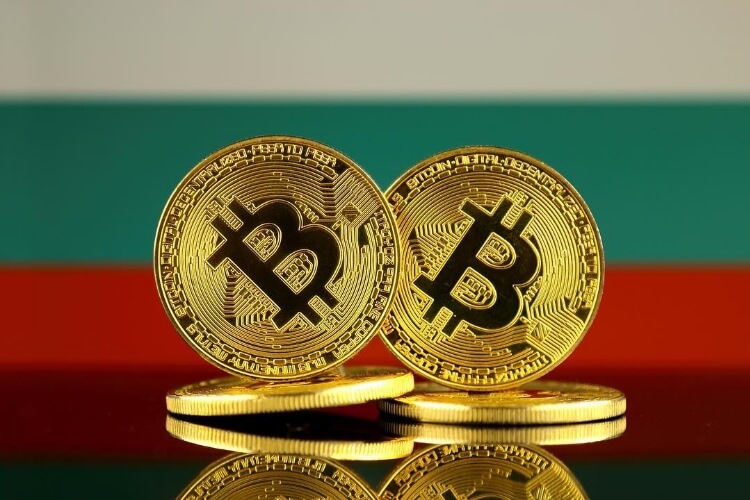Ukraine is not a place where you would expect cryptocurrencies to boom, and yet they do. It was the day after Christmas. Exmo Finance CEO Pavel Lerner was on his way out of the office when a black Mercedes-Benz pulled next to him, with armed men in balaclavas descending and hasting him inside. Mr Lerner was released 48 hours later after agreeing to pay a whopping ransom amount. He foot a rather steep bill of a million-dollar ransom.
It has been quite the hit for Ukraine’s rather new crypto industry. News of the kidnapping sent ripples across the crypto world in general, and according to some – leading to a slight dip in the prices of cryptocurrencies. The case of Mr Lerner demonstrates the thin line between legitimacy and illegality.
Ukraine has been quick to act on cryptocurrencies in general, but perhaps not always for the right reasons. Recently, police forces raided a semiconductor plant in Kiev, seizing $4 million worth of computer equipment. The hardware, police claimed, had been used to mine bitcoin that was linked to bank accounts in Russia. The proceedings, police said, were used to fund the separatists in Donetsk and Lugansk regions.
We Request Status Update
Officially, cryptocurrencies are outlawed in Ukraine, as the government has suspected that bitcoin has been used to purchase military equipment for various guerrilla groups in the East.
Meanwhile, the raid on Kvazar has hardly been the first similar move the Ukrainian government has carried out. Earlier, police forces appeared at the ForkLog offices in Odessa. The raid was tinged with political motivation once again, as ForkLog is one of the main Russian blockchain outlets in the country. The antithesis was that the website was supplying separatists in Donbas with crypto currency.
But what has led to the recent developing, casting Ukraine as a lawless country. The answer is pretty simple – the lack of laws. Ukraine does not officially regulate its cryptocurrencies. The government has been cripplingly slow and inefficient in passing any meaningful line of legislation regarding the industry.
As a result, cryptocurrencies are suspended in a legal limbo. Meanwhile to the west, Belarus has already legalized its cryptocurrencies and Initial Coin Offerings (ICO). Not only that, but the country has also freed crypto mining from taxes for a stint of five years, in the hopes of propelling the IT industry.
Across the Former Soviet States
Comparing regulation all across the former Soviet states, it appears that countries have been pushing ne masse to introduce new and exciting ways to rely on the temporary fad that has seized cryptocurrencies. Armenia and Georgia have been pushing for legalizing the cryptocurrencies and ICOs. Even tiny Bulgaria was reportedly holding 3 billion in Bitcoin, or enough to pay one-fifth of the country’s debt.
On the other end of the spectrum, there is Ukraine. The country has been painfully slow to pass any meaningful regulation, which has led to the present-day state of limbo that now reigns supreme across the country.
Ukraine fears that cryptocurrencies will be used to facilitate illegal activities and intervention on the part of Russia into its internal affairs. Ukraine is right, but its inability to address a direct threat has been more pernicious for the country’s well-being than any foreign intervention.
Ukraine must act quickly and decisively on cracking down on illegal Bitcoin activities. With the Bank of England now pressing for the regulation of the industry and ensuring that all illegal assets are uprooted, Ukraine stands a brilliant chance to forge ahead and tackle any obstacle that comes its way.
Still, antagonizing exchanges – Russian or otherwise, would only give teeth to pro-Russian crypto investors or otherwise to advance the cause of a foreign country in its midst. Instead of chastising investors based on their nationality or political inclinations, Ukraine should do well to protect its current businessmen from self-styled gangsters raiding across its cities like band of criminals in a Western flick.
One thing that Ukraine could be doing is legalizing its bitcoin industry so the country’s powerful IT sector could cotton on. Presently, IT in Ukraine is worth $4 billion as of last year’s earnings. This is a whopping amount that can help Ukraine break away from any foreign intervention.
Another reasonable thing to do would be to introduce a condition whereby every holder of cryptocurrency would be obliged to link their crypto operations to a bank account with their name on it. Naturally, criminals could still use straw mans to mask their identities, but if the governments presses matters, it could pave the road for a well-regulated industry and uproot any foreign intervention.
However, it will need backbone, decisiveness and politicians that are free from ties with foreign entities who are paying them generous, both in FIAT and crypto currencies in order to keep their loyalties straight.



Comments (No)